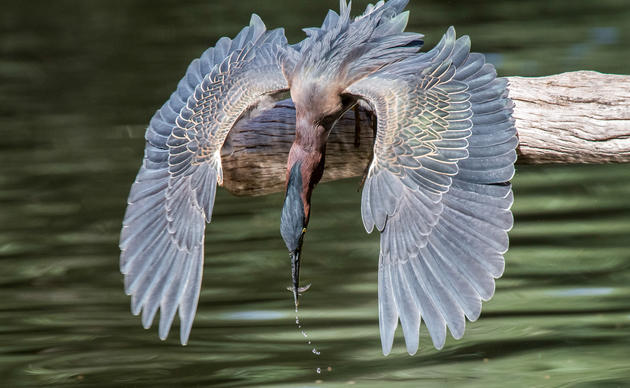This article first appeared on The Island Packet.
Audubon South Carolina and Sunrun were two among many organizations and companies cheering as Gov. Henry McMaster signed the historic S.C. Energy Freedom Act into law last spring. This legislation will help more South Carolinians make the switch to solar, which means more economic growth and more widespread opportunity in an industry with a tremendous future ahead of it.
Unlike traditional forms of energy, solar is also a better choice for protecting our precious natural resources — as it doesn’t require large amounts of water to generate or large-scale mining for fuel, and it doesn’t create hazardous waste to runoff in our rivers and lakes or greenhouse gasses and other toxic emissions likely to cause asthma and other health concerns.
And while local solar has the benefit of using existing roofs to produce energy, large-scale solar installations can actually create new wildlife habitat while improving the yields of nearby agricultural crops and increasing flood storage. That’s why Audubon South Carolina worked with the South Carolina Department of Natural Resources to pass the Solar Habitat Act in 2018, which provides bird- and pollinator-friendly guidelines for commercial solar developments.
The Energy Freedom Act is a huge step in the right direction. We must do more to ensure South Carolina fully realizes the enormous benefits a strong solar industry could bring to our state.
Most urgently, Congress must act to protect the solar investment tax credit (ITC) for businesses and individuals. Scheduled to be reduced at the end of this year, this common-sense policy allows individual homeowners, businesses, and churches to lower their federal taxes by 30 percent of the cost of installing solar panels.
By effectively making it cheaper to install solar, the ITC has created hundreds of thousands of good-paying jobs since it was first signed into law by President George W. Bush, and it has been responsible for jump-starting massive investment in clean energy across the country.
Reducing or eliminating the ITC would be bad for businesses, consumers, and birds. Conversely, an extension of the ITC would create another 100,000 jobs through 2030, inject $87 billion in new private investment, and offset carbon pollution equal to taking 77 million cars off the road.
As the only major solar market without a residential property tax exemption, we also encourage members of the state legislature to ensure South Carolina homeowners who choose to produce their own solar energy are protected from unexpected property tax increases. Doing so would help keep rooftop solar competitively priced and reasonably accessible to all residents.
South Carolina is now the fifth-largest solar market in the United States and is quickly emerging as one of the true innovators in the nation. Reach out to your state and federal elected officials today to voice your support for policies that ensure the future for solar energy in the Palmetto State remains bright.
Justin Stokes is the executive director of Audubon South Carolina and Tyson Grinstead is the director of public policy at SunRun, the largest provider of residential solar in the U.S.



